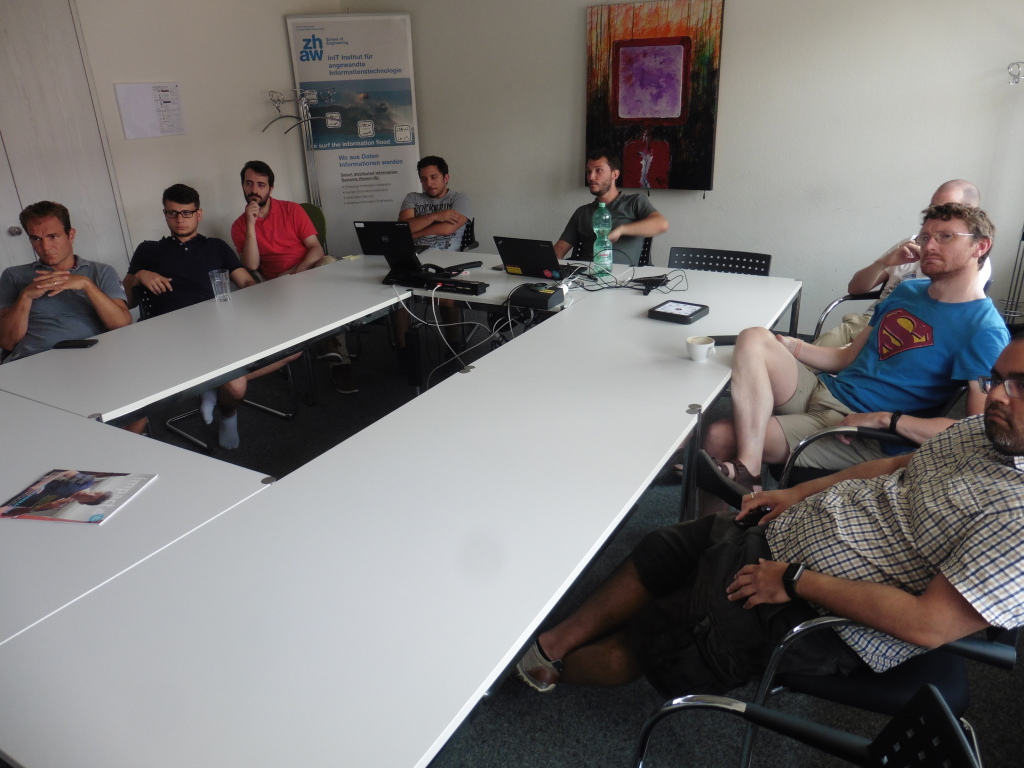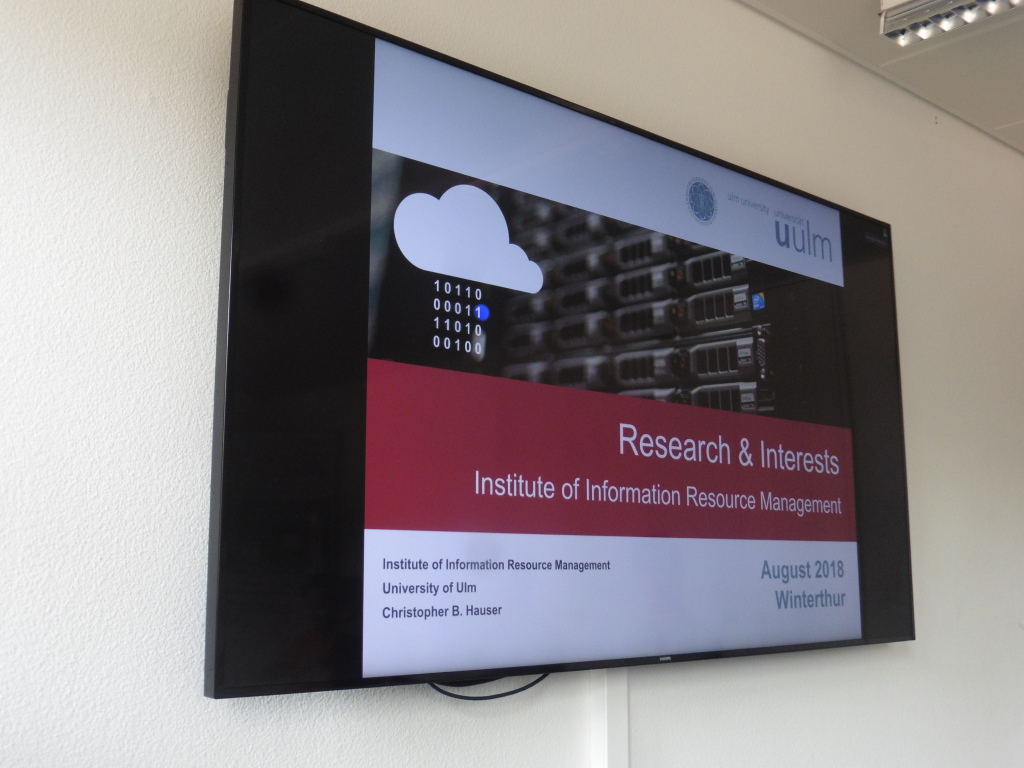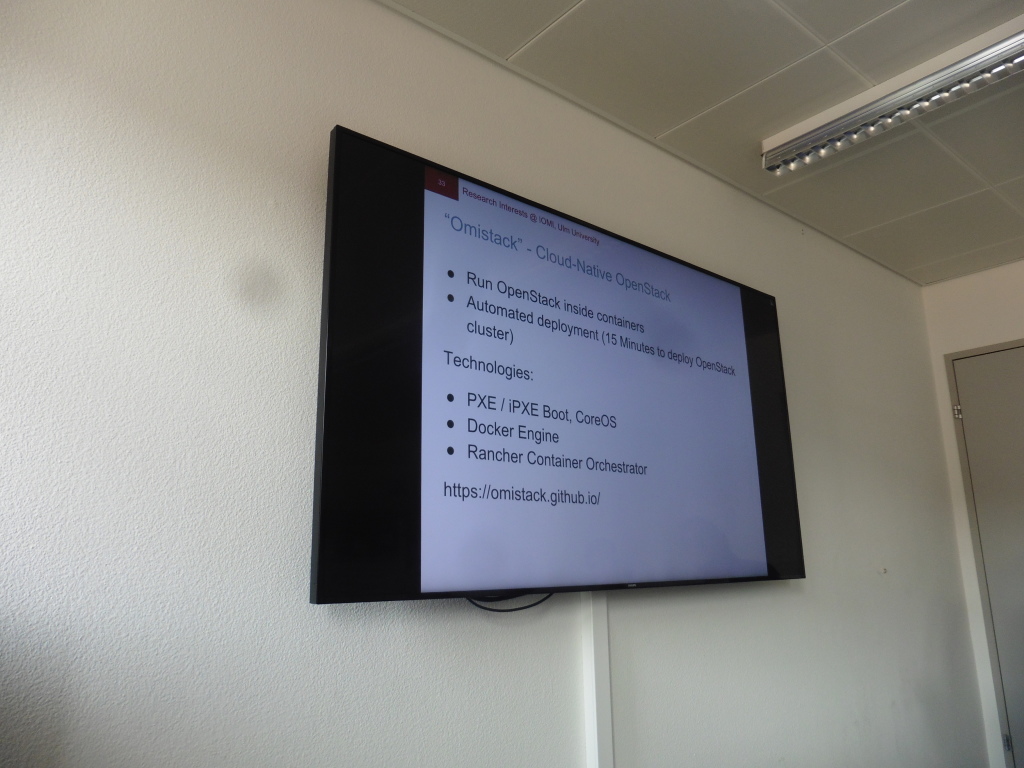At the Service Prototyping Lab, we were honoured to receive the fourth international speaker in our colloquium series this year. Christopher Hauser presented the ongoing research at Ulm University, specifically in the Institute of Information Resource Management whose research is centered on loosely and tightly coupled systems. The colloquium speaker focused more on the former and hence presented his talk «Research and Interests» with emphasis on cloud computing and heterogeneous systems. The main points of interest arising from the talk and the discussion are summarised in this article.

Christopher Hauser has already been known to the group due to a prior visit of Josef Spillner to Ulm upon his invitation, and due to his work with OpenStack and as publicity co-chair for the 11th IEEE/ACM International Conference on Utility and Cloud Computing (UCC 2018) which we will host in Zurich in December this year. Hence, everybody looked forward to his views, and the perspectives of his colleagues, on the current state of cloud computing which is often considered in a decline with less funding, less innovation opportunities, and less space for academic research compared to industry-enforced innovation.

The talk focused a lot on recently concluded as well as still ongoing research projects especially in the European space, but also with regional/state-level scope, along with practical tools which have emerged from the projects. Among them is Cloudiator, a cross-cloud (multi-cloud) toolset for the deployment of applications, and Omistack, a new way to deploy OpenStack inside containers, compared to for example Kolla Ansible. Similar to software results from the Service Prototyping Lab, the institute’s prototypes are available as maintained open source solutions. Related to our work on multi-cloud management, the MELODIC platform enables data-intensive applications to run seamlessly on geographically distributed infrastructures; and related to our work on cloud-native databases, the group analyses the impact of the storage layer on containerised database management systems.

The notions of edge computing and serverless computing were quite prominent in the discussion which followed. There was also a reflection of the ongoing trend to see a lot of functionality, such as scheduling and orchestration, placed into mainstream stacks which reduces the need for basic research but allows for more advanced exploration of how well an application is finally served end-to-end. As major research challenge, the handling of state and user data was acknowledged, and the current state of technology is far from desirable in that regard. Hence, to counter the introductory hypothesis, research opportunities in cloud computing are indeed still plentiful but need to be tackled by well-run consortia with long-lasting impact.